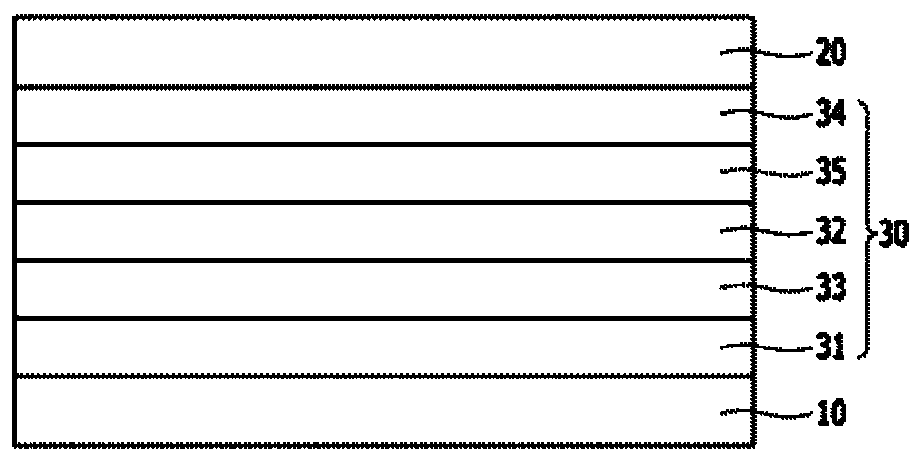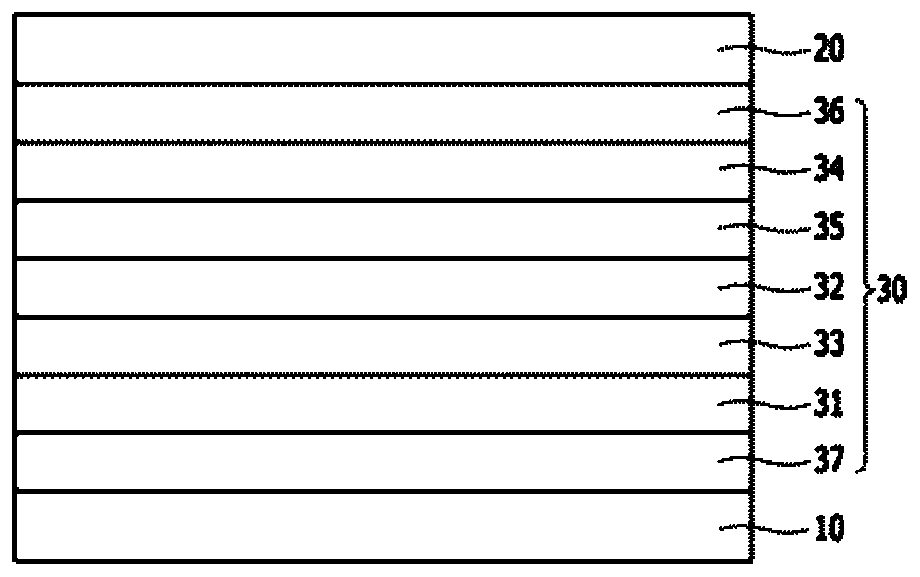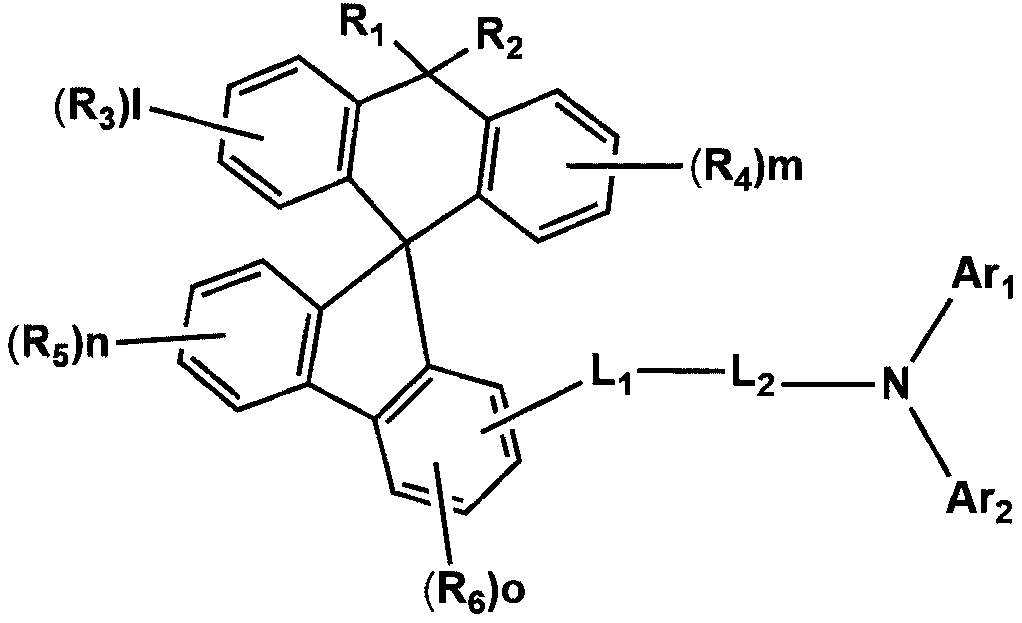Organic compound and organic electroluminescent device comprising same
A compound and chemical formula technology, applied in the field of organic electroluminescent elements, can solve the problems of poor thermal stability, unsatisfactory life of light-emitting elements, low glass transition temperature, etc.
- Summary
- Abstract
- Description
- Claims
- Application Information
AI Technical Summary
Problems solved by technology
Method used
Image
Examples
Embodiment
[0150] [Preparation example 1] Synthesis of core (Core) 1
[0151] Synthesis of 9-(4'-chloro-[11'-biphenyl]-2-yl)-1010-dimethyl-910-dihydroanthracene-9-ol
[0152]
[0153] 500 mL of THF was added to 50 g (0.19 mol) of 2-bromo-4'-chloro-1,1'-biphenyl. Next, the temperature of the reaction liquid was lowered to -78° C., and 128 mL (0.21 mol) of n-BuLi 1.6 M solution was slowly added dropwise to the reaction liquid. After stirring at the same temperature for 1 hour, 45.7 g (0.21 mol) of 10,10-dimethylanthracene-9(10H)-one was dissolved in 500 mL of THF and slowly added to the reaction solution, followed by stirring at the same temperature 1 hour, then further stirred at room temperature for 24 hours. Thereafter, 500 mL of purified water was poured into the reaction liquid to complete the reaction, and then extracted with E.A 2.0 L and washed with distilled water. Afterwards, the resulting organic layer was washed with anhydrous MgSO 4 After drying and distillation un...
Synthetic example 1
[0233] [Synthesis Example 1] Synthesis of Compound 2
[0234]
[0235] 100 mL of toluene was added to 8.1 g (20.6 mmol) of Preparative Example 1 and 6.0 g (18.7 mmol) of bis([1,1′-biphenyl]-4-yl)amine. 0.91g (1.0mmol) of Pd 2 (dba) 3 , 0.91 g (1.9 mmol) of XPhos, and 3.6 g (37.4 mmol) of NaOt-Bu were added to the reaction solution, and heated to reflux at 120° C. for 5 hours. The temperature was cooled to normal temperature, and the reaction solution was terminated with 300 mL of purified water. The mixture was extracted with 500 mL of E.A, and washed with distilled water. The resulting organic layer was washed with anhydrous MgSO 4 After drying and distillation under reduced pressure, it was purified by silica gel column chromatography to obtain 8.6 g of the target compound (yield 68%).
[0236] [LCMS]: 677
Synthetic example 2
[0237] [Synthesis Example 2] Synthesis of Compound 4
[0238]
[0239] Using 2'-chloro-10,10-dimethyl-10H-spiro[anthracene-9,9'-fluorene] and N-([1,1'-biphenyl]-4-yl)- Except for [1,1'-biphenyl]-2-amine, the procedure similar to [synthesis example 1] was implemented and the target compound 5.5g was obtained (yield 72%).
[0240] [LCMS]: 677
PUM
 Login to View More
Login to View More Abstract
Description
Claims
Application Information
 Login to View More
Login to View More - R&D
- Intellectual Property
- Life Sciences
- Materials
- Tech Scout
- Unparalleled Data Quality
- Higher Quality Content
- 60% Fewer Hallucinations
Browse by: Latest US Patents, China's latest patents, Technical Efficacy Thesaurus, Application Domain, Technology Topic, Popular Technical Reports.
© 2025 PatSnap. All rights reserved.Legal|Privacy policy|Modern Slavery Act Transparency Statement|Sitemap|About US| Contact US: help@patsnap.com



